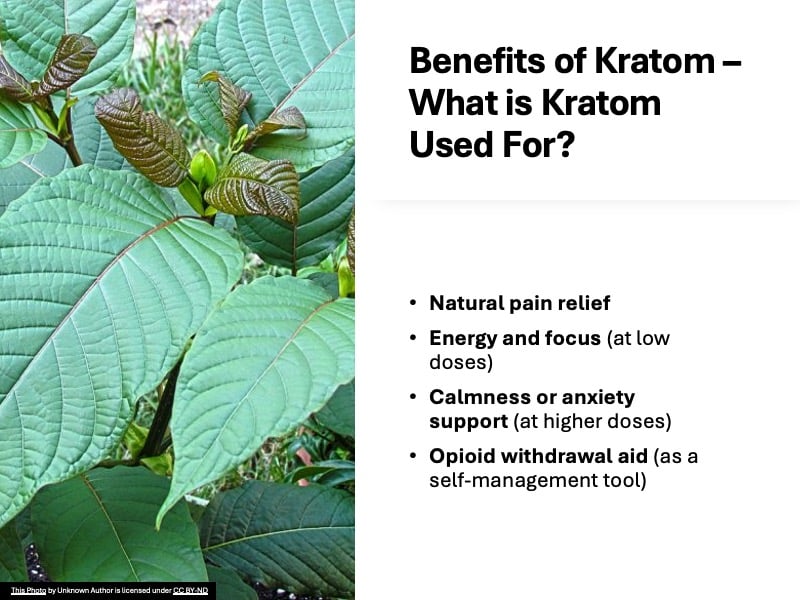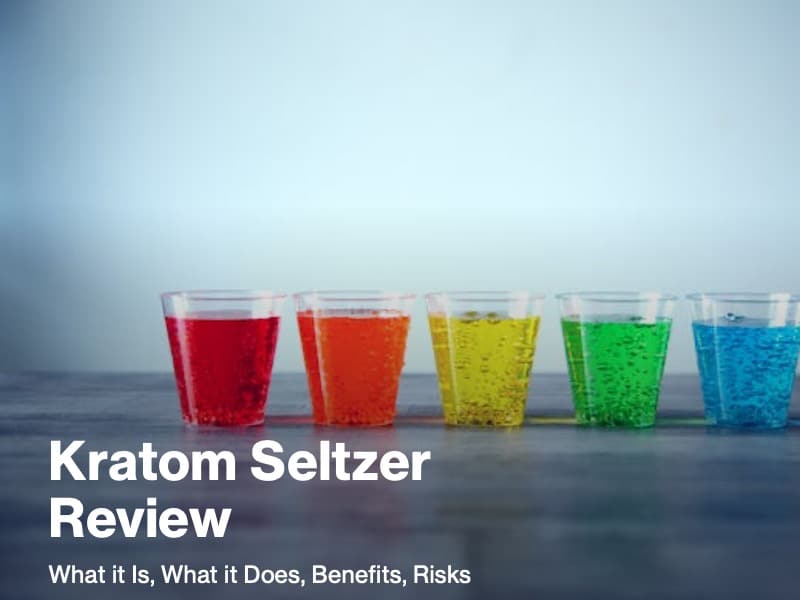Kratom Seltzer Review: What to Know Before Trying
Kratom seltzer is a new addition to the expanding world of functional beverages, blending sparkling water with extracts from Mitragyna speciosa, a tropical tree native to Southeast Asia.
For centuries, people in countries like Thailand and Malaysia have used kratom leaves for mild stimulation, pain relief, and to manage fatigue during long workdays (Singh et al., 2016).
By infusing carbonated drinks with kratom extracts, modern manufacturers aim to offer a convenient, ready-to-drink alternative to traditional teas or powders.
While these kratom drinks appeal to some health-conscious consumers looking for a novel boost of focus or relaxation, it’s essential to understand the science, potential risks, and the lack of regulatory oversight behind kratom seltzer.
Disclaimer: The information presented here is for general educational purposes only and should not be interpreted as medical advice. Kratom and kratom-infused products have not been approved by the U.S. Food and Drug Administration (FDA) for any medical use. Use of kratom carries potential risks, including dependence, liver toxicity, and interactions with other medications. Always consult a qualified healthcare professional before using kratom in any form, verify your local laws, and source products only from reputable, third-party tested suppliers to reduce the risk of contamination or adulteration.
What Is Kratom Seltzer?
Kratom seltzer is a ready-to-drink beverage that infuses carbonated water with extracts from Mitragyna speciosa(kratom).
Brands like White Rabbit use flavorings to mask kratom’s naturally bitter taste, packaging the drink in single-serve cans for easy, discreet use.
Unlike raw kratom tea or powder, kratom seltzer is marketed for its simplicity: no brewing, no mess, and clear serving sizes.
This appeals to busy consumers curious about kratom’s mild energy and calming effects (Hemby et al., 2019).
How Does Kratom Seltzer Work?
The main active compounds in kratom are mitragynine and 7-hydroxymitragynine, which interact with opioid receptors in the brain.
At low doses, kratom can have mild stimulant-like effects. Higher doses may produce sedation or pain relief (Henningfield et al., 2022).
Most kratom seltzers contain lower doses designed to deliver gentle focus or relaxation, not strong sedation.
However, strength can vary, and the effects depend on the user’s tolerance and metabolism.
Reasons Why Kratom Seltzer is a Popular Choice

Some users choose kratom seltzers for:
- Mild Energy: The mitragynine content may support alertness and focus in small amounts (Hemby et al., 2019).
- Mood Balance: Some people report gentle mood enhancement and stress relief, especially with white or green vein kratom (Henningfield et al., 2022).
- Simplicity & Convenience: Canned kratom seltzers make portion control easier compared to loose powders.
- Refreshing Flavors: Unlike traditional kratom tea, which is often bitter, kratom seltzer offers crisp, balanced flavors that are easier to enjoy socially.
It’s important to note that these benefits are mostly anecdotal. Kratom has not been approved by the FDA for any medical purpose.
Risks and Concerns: What Science Actually Shows
Although kratom is a natural plant product, modern research highlights that it is not inherently risk-free.
Both clinical studies and case reports point to several important health and safety concerns that consumers should carefully weigh:
Potential for Dependence
Regular use of kratom can lead to tolerance, physical dependence, and mild withdrawal symptoms.
Reported withdrawal effects can include irritability, muscle aches, insomnia, and mood disturbances, similar in nature, though generally milder than traditional opioid withdrawal (Singh et al., 2014).
Liver Health Risks
While uncommon, isolated medical case studies have documented cases of acute liver injury linked to kratom use.
These instances may involve high doses, prolonged consumption, or contamination with other substances.
Reported symptoms include jaundice, fatigue, and elevated liver enzymes (LiverTox, 2020).
Product Quality and Potency Variability
Since kratom products, including seltzers, are not regulated or approved by the U.S. Food and Drug Administration (FDA), their strength, purity, and alkaloid content can vary widely between brands and batches.
Products without third-party lab testing may contain impurities, adulterants, or inaccurate dosage information, which can increase the risk of unexpected effects or toxicity.
Is Kratom Seltzer Legal?
Kratom’s legal status is complicated.
It is not federally banned in the U.S., but some states and municipalities have outlawed its sale or use.
Always check your local laws before buying or drinking kratom seltzer.
Final Thoughts: Should You Try Kratom Seltzer?
If you’re curious about kratom seltzer, consider these steps first:
- Consult a qualified healthcare provider, especially if you have liver conditions or take prescription medications.
- Research brands that follow Good Manufacturing Practices and provide lab reports.
- Stick to small servings to gauge your tolerance.
Kratom Seltzer, like white rabbit kratom seltzer, is part of a wave of trendy, plant-based drinks aiming to balance wellness, flavor, and convenience.
The concept may appeal to wellness-focused consumers, but the underlying risks, including dependence, liver health concerns, and legal gray areas should not be overlooked.
For anyone considering kratom seltzer, an honest conversation with your doctor is the smartest first step.
For energy and recovery, evidence-based alternatives such as CBD or adaptogens may be a safer starting point for many people (Swogger & Walsh, 2017).
Disclaimer: This information is for educational purposes only and should not be taken as medical advice. Kratom products are not approved by the U.S. FDA for any medical use and may pose health risks. Always verify your local laws and speak with a healthcare professional before trying kratom or any kratom-derived product.
This website does not provide medical advice. This website site does contain affiliate links, and purchases may earn a commission.
Read my Medical Disclaimer, Review Disclaimer, and Publishing Policies for more details. Use of this site indicates acceptance of these terms.



